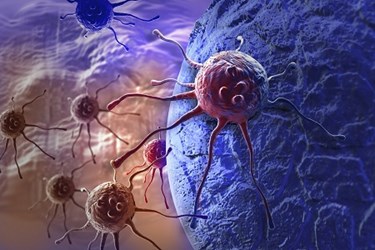Researchers Should Think Globally As World Cancer Day Approaches

By Christine Kern, contributing writer

One researcher says U.S. experts need to spread their knowledge with the rest of the world.
February 4 is World Cancer Day, a day set aside to promote awareness about how everyone and anyone can do their part to reduce the global burden of cancer. The goal of the initiative is to get as many people as possible around the globe talking about cancer, treatment, and cures. According to the World Cancer Day website, approximately 8.2 million individuals die from cancer worldwide annually, and some 4 million of those die prematurely (between 30 and 69 years of age).
But one well-known cancer researcher and expert believes the U.S. is too insular when it comes to cancer detection and treatment and needs to do more to share its knowledge with the rest of the world. “In my experience, nearly everyone in the U.S. — including many of my colleagues in the medical profession — is focused only on cancer-related challenges that directly affect patients here,” Dr. Paul Goss, a globally renowned cancer specialist with more than 35 years of clinical and research experience, told Health IT Outcomes in an email. The Director of Breast Center Research at Massachusetts General Hospital and Co-Director, Breast Cancer Disease Program, at Dana Farber-Harvard Cancer Center, he is also the founder of the Global Cancer Institute (GCI).
“Even the Cancer Moonshot program, a worthy endeavor that’s technically global in scope, will truly only impact the U.S.,” Goss says. That’s because there is an enormous gap between U.S. patients and those in the rest of the world, another gap between developed and developing countries, and a third gap between rich and poor inside developing countries. “Even if a cure for cancer were found tomorrow, it wouldn’t affect the vast majority of the world’s cancer patients,” says Dr. Goss.
And while the U.S. has focused research initiatives on beating various forms of cancer, experts estimate that by 2025, 59 percent of new cancer cases will occur in developing nations where the average patient is roughly twice as likely to die from their cancer than a patient in the U.S. That increased risk is primarily from lack of screening, lack of access to treatment, and treatment methods that are decades behind those used in the U.S. To illustrate this gap, 58 percent of breast cancer patients in Mexico present with advanced-stage cancer, versus just 12 percent of breast cancer patients in the U.S.
“Preventing millions of unnecessary deaths and suffering from cancer is not outside of the world’s scientific or financial capabilities,” said Dr. Cary Adams, Chief Executive Officer, UICC. “It will however require collaborative action at both individual and collective levels — spearheaded by key leaders in society. Governments have made global commitments to priority actions for addressing cancer; we now need to see these converted to national investments in treatment centers, services and skilled health workers, as well as health promotion. Employers can play a crucial role also by investing in the well-being of their workplace and the wider environment which they impact.”
